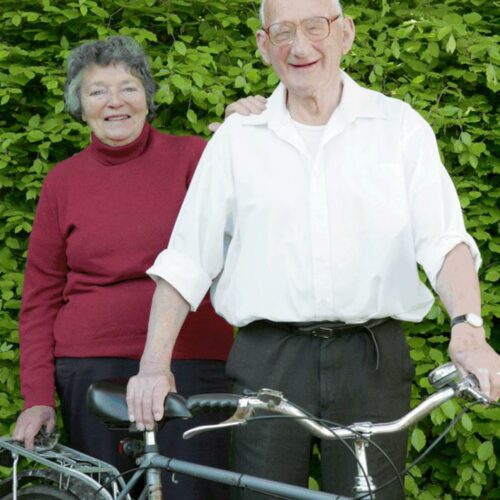

William Pirrie Barbour was a classicist, codebreaker, teacher, and activist. A rationalist and humanist, Barbour championed integrated education in his native Northern Ireland, and was Honorary President of the non-sectarian Alliance Party.
The biography reprinted below was first published in February 2016 as part of the Dictionary of Irish Biography, and revised in February 2019. It is reproduced here under the terms of the Creative Commons Attribution Non Commercial 4.0 International license.
Contributed by Maume, Patrick
Barbour, William Pirrie (‘Bill’) (1920–2009), teacher, and community and political activist, was born in Newtownards, Co. Down, son of Walter Terence Barbour, a director of the Combe Barbour engineering firm, and his wife Blanche (née Redman), whose father owned wine shops in London. William had at least four brothers and one sister. His father’s branch of the Barbour business dynasty was impoverished after 1918 by the decline of the family firm combined with unfortunate investments in Irish railway shares; William Barbour and his siblings had to make their way in life through intellectual ability.
Barbour was educated at Bangor Grammar School and TCD, where he took a first-class honours degree in classics early in 1942. During his studies he served in the Pearse Battalion of the Local Defence Volunteers, recruited from university students. He was then recruited (on the recommendation of Professor Joseph Johnston (qv)) as a code-breaker by the British Foreign Office (classicists could become useful code-breakers because of their training in reconstructing fragmentary texts), moving to London to work on diplomatic codes at the Government Code and Cypher School (precursor of the post-war British code-breaking centre GCHQ), and fire-watching at night from St Paul’s cathedral.
In 1943 Barbour met (Kathleen) Anne Borrell (1926–2009), who worked in the Foreign Office secretarial service and for a time at the celebrated Bletchley Park code-breaking centre. After eighteen months at the Foreign Office, Barbour joined the Royal Inniskilling Fusiliers as a private; in 1944 he was assigned to Military Intelligence and posted to Egypt. He was demobilised in 1947 as a sergeant and returned to Britain suffering from malaria.
On recovery, Barbour became a junior classics teacher, first at Kingswood School near Bath, then at Colchester Royal Grammar School; at Anne’s insistence, her parents consented to her going to Colchester to live with him. Although Barbour came from a nominally presbyterian background, he and Anne were atheists, Anne being more outspoken. After a short period, fearing non-marital cohabitation might harm Barbour’s career prospects, they were married at Colchester registry office on 11 December 1948; they later had two sons and two daughters.
In 1951, Barbour successfully applied for the position of assistant classics master at Portora Royal School in Enniskillen, Co. Fermanagh (he subsequently became principal classics master). He recalled that after his interview the headmaster (a Church of Ireland clergyman) asked him about his personal religious beliefs; when he said he was an atheist, the headmaster replied that had he been a Roman catholic there would have been difficulty in appointing him (because the school’s board of governors would have had to approve the appointment).
Barbour taught classics (Greek, Latin and ancient history) and English at Portora until retirement in 1983, and was housemaster in charge of Munster House for day boys from 1955, as well as serving as school librarian. Many of his pupils obtained scholarships at Cambridge and TCD. He was also a rugby coach, and took charge of the school cricket teams (senior and junior) and the chess club, which under his guidance won the Sullivan Cup (for inter-school competition) ten years in a row. He was popular with staff and pupils for his gentle and friendly manner and his sense of humour; a school magazine portraying the inmates of Portora as wizards and elves called him ‘Broubra the Gentle’. Above all, he was interested in pupils as individuals and did not pressurise them to conform to his own religious and political beliefs. (His last pupil to win a classical scholarship to Trinity was Michael Jackson, Church of Ireland bishop of Clogher (2002–11), elected archbishop of Dublin in 2011.)
The Barbours spent the rest of their lives in Enniskillen, familiar figures often seen cycling or walking around the town, engaging passers-by in conversation. Anne helped to support the family by part-time secretarial work in the early 1950s, and worked as a secretary in Gloucester House (1966–84), the preparatory school for Portora; after the school admitted female pupils, Barbour became housemaster for the girls’ house, Head’s House.
The Barbours were involved in a wide variety of civic activities in Enniskillen. Both were active in the Enniskillen Literary and Debating Society (founded by Mary Rogers, local historian and Portora teacher; it achieved considerable cross-community support but collapsed after the outbreak of the Northern Ireland troubles). Anne participated in local choral and dramatic productions; she trained as a marriage guidance counsellor, and in the early 1970s visited women prisoners in Armagh gaol. They were skilled bridge players; in the 1960s and 1970s, Barbour took the leading role in a local chess group and was active in Enniskillen cricket club.
An active member of the Enniskillen branch of the Royal British Legion, Barbour held various committee positions including secretary and chairman; he also served as chairman of the Royal British Legion Housing Association (Northern Ireland), founded 1977 and renamed Clanmil Housing Association in 1996. The British Legion’s sheltered housing scheme at Paget Square, Enniskillen, in whose construction Bill Barbour had played a significant role, was named Barbour Court in his honour. Barbour emphasised that the British Legion drew members from both sides of the religio-political divide, and promoted its Enniskillen clubhouse as a cross-community meeting place. From 1977, Barbour represented the legion on Fermanagh Citizens’ Advice Bureau, in which Anne was also active.
Bill Barbour took a particularly strong interest in the preservation of Enniskillen’s urban environment, and regularly wrote to local newspapers on such matters as tree clearance along the Erne and the environmental problems posed by mobile phone masts. As late as 2007, the 86-year-old Barbour lobbied the locally based government minister Arlene Foster about the provision of cycle paths and better conditions for cyclists generally. He was also a longstanding Oxfam activist, and took a leading role in the Fermanagh Third World Group, founded in response to the 1984 famine in Ethiopia. In his later years he was outspokenly critical of Israeli military action against Palestinians. He was active in a number of other community groups, including vice-chairmanship of the Enniskillen-based Topped Mountain Historical Society, which produced several publications on local history. For some years the Barbours owned a cottage on Topped Mountain, near Enniskillen, and intended to retire there; the cottage was sold because of Anne’s declining health, but the Barbours’ ashes were eventually scattered on the mountain.
Barbour’s first political involvement was with the Liberal party led by Albert McElroy (qv). When the Liberals contested Fermanagh–South Tyrone in the 1964 Westminster election and Enniskillen in the 1965 Stormont election, Barbour campaigned for their candidates, facing significant threats and intimidation; in some villages, Anne insisted on remaining in their car while he spoke, hoping that this might make rowdies more reluctant to overturn the vehicle. Like most Liberal supporters, Barbour moved to the centrist Alliance party on its establishment in 1971, serving on the party’s executive (1971–7). In 1984, after retiring from Portora, he returned to the Alliance executive as principal organiser, and was party vice-chairman (1985–7) and chairman (1987–9).
Barbour regularly predicted that the Alliance party would make a major breakthrough in the future. These hopes were never realised; despite his best efforts and a dedicated cadre of local members, Fermanagh District Council never had an Alliance member. (This was due to several factors, including the county’s rural nature and the relative weakness of its urban middle class, the polarisation encouraged by the tight balance between nationalist and unionist, and the historic weakness of presbyterianism within the local protestant community.) Barbour was a leading member of the small group of activists who kept Fermanagh Alliance going, serving repeatedly as president or secretary of the local organisation and deploying his skills as organiser and fund-raiser to assist the wider party.
Appalled by the violence of the troubles, Barbour maintained that the only way to defeat terrorism was for moderates from both communities to isolate extremists by creating a ‘strong centre’ on the model of the SDLP–Faulkner Unionist–Alliance coalition under the short-lived Sunningdale agreement. (He briefly served as a private in the UDR at its inception, when he hoped it would fulfil its intended role as a non-sectarian replacement for the B Specials.) He welcomed the 1985 Anglo-Irish agreement and the 1998 Good Friday agreement, and in 2007 was still predicting that Alliance would eventually provide political expression for a new generation seeking to break down the religious divide and work together for the common good.
From 1970, Barbour called for local government in Fermanagh to be based on a committee system with equal representation from both communities; as Alliance party national chairman, he participated in talks with the SDLP and the Workers’ Party that he hoped might develop into wider inter-party dialogue, and towards the end of his life paid tribute to the role of Independent Councillor Davy Kettyles in bringing about local power-sharing on Fermanagh council.
In 1975, Barbour contested the Northern Ireland Convention election in Fermanagh–South Tyrone (saving his deposit with transfers from the pro-Sunningdale Unionist Party of Northern Ireland), and in 1985 and 1989 was an unsuccessful candidate for Fermanagh District Council in the Enniskillen area. He was agent for other Alliance candidates in several elections, also acting as press officer for Fermanagh Alliance and running training sessions for party activists.
Much of Barbour’s energy in his later years was devoted to promoting integrated education, and this may be his principal legacy to Enniskillen. Although he advocated integrated education from 1973, his involvement increased after the 1987 IRA bombing of the Enniskillen Remembrance Sunday ceremonies that killed eleven civilians. (As a British Legion activist, Barbour regularly marched on Remembrance Sunday.) Barbour became active in Enniskillen Together, a group set up to promote cross-community cooperation after the bombing, and joined a subsection that chose to concentrate on developing integrated education locally. He was a founding governor of Enniskillen Integrated Primary School (opened in temporary accommodation in 1988; he helped to raise funds for the purpose-built school opened in 1991) and a member of the steering committee that established its secondary counterpart, Erne Integrated College. (An integrated nursery school was also developed.) Barbour was a director of the Northern Ireland Council for Integrated Education and served as chairman and director of the Western Area Charitable Trust for Integrated Education.
From 2001, Anne Barbour developed memory problems identified as a sign of encroaching dementia; her mother had died from Alzheimer’s disease and she feared a similar fate. As her memory faded, Barbour became her principal carer; they were reluctant to seek help from social services and resistant to the prospect of residential care. (Their children lived away from Enniskillen, and the Barbours turned down offers to go and live with them.) From early 2009, Anne’s condition deteriorated. On the night of 23 November 2009 Anne died from suffocation, and Barbour drowned himself in nearby Rossole Lough after leaving notes stating: ‘Dementia is too degrading for anyone to have to suffer unnecessarily. We lived too long’ (Fermanagh Herald, 28 September 2011). Their children believed, in hindsight, that their parents had a longstanding suicide pact whereby Bill would take Anne’s life if her dementia progressed past a certain point. The Barbours’ brains were bequeathed for Alzheimer’s research. Despite some sensationalist media coverage, there were widespread expressions of sympathy for the couple, particularly in Enniskillen. A memorial garden for them was opened at Erne Integrated College in 2011.
When addressing the pupils of Erne Integrated College in November 2000, Bill Barbour spoke of his belief in the Greek philosophical maxims that to know your duty is to do it and that nothing should be done to excess. He was pre-eminently a rationalist in life and in politics, and while this led to his being seen in some quarters as an eccentric it also made him a gadfly seeking to identify the shortcomings of the society he inhabited and work to put them right.
Ulster Herald, 7 Nov. 1970; 19 June 1971; 14 Dec. 1985; 30 May 1987; 11 Nov. 1989; Ir. Times, 29 Mar. 1971; 6 Mar. 1972; 19 Apr., 3 May 1975; 24 Apr., 8 Oct. 1987; 1 Dec. 2001; 27 Nov. 2009; Fermanagh Herald, 10 Apr. 1971; 26 Feb., 19 Aug. 1972; 7, 28 Apr., 23 June 1973; 12 Jan., 27 Apr. 1974; 19, 26 Apr., 3, 10, 24 May, 20 Sept., 11 Oct. 1975; 31 Jan., 7 Feb., 22 May, 23, 30 Oct., 13 Nov. 1976; 5 Nov. 1977; 11 Nov. 1978; 10 Feb. 1979; 2 Feb., 4 Oct. 1980; 5 Dec. 1981; 19 Feb., 10 Dec. 1983; 2, 30 June, 22 Sept., 10, 24 Nov., 1 Dec. 1984; 5, 26 Jan., 2, 9 Feb., 2, 9, 23 Mar., 13, 20 Apr., 11 May, 14 Sept., 2, 30 Nov. 1985; 5, 26 Apr., 3 May, 13 Sept., 8 Nov. 1986; 3 Jan., 14 Mar., 9 May, 26 Sept. 1987; 13 Feb., 2 July, 5, 12, 26 Nov. 1988; 28 Jan., 11 Mar., 29 Apr., 6 May 1989; 17 Feb. 1990; 23 Feb., 29 June 1991; 11 Jan., 8 Feb., 14 Mar., 13 June, 4 July, 17 Oct. 1992; 25 Sept. 1993; 26 Mar., 15 Oct., 10 Dec. 1994; 1 Oct., 29 Nov. 1995; 5 Feb., 19 Mar., 8 Oct. 1997; 28 Jan., 11 July, 6 May, 24 June, 15 July 1998; 16 Aug., 13 Sept., 15 Nov. 2000; 30 May 2001; 28 Feb., 27 June, 8 Aug. 2007; 11 Feb., 17 June, 2, 9 Dec. 2009; 13 Jan. 2010; 28 Sept., 12 Oct. 2011; 5 Mar. 2014; Ir. Press, 24 Apr. 1987; Ir. Independent, 24 Apr., 23 Nov. 1987; Portora Royal School Portora, the school on the hill: a quatercentenary history: 1608–2008 (2008); Belfast Telegraph, 25 (final ed.), 26, 27, 28 Nov. 2009; Ir. News, 26, 27, 28, 30 Nov. 2009; Newsletter (Belfast), 26, 27, 30 Nov. 2009; Impartial Reporter, 26 Nov., 3 Dec. 2009; Daily Express, 4 Jan. 2010; Independent (London), 7 Jan. 2010; ‘Our family: Anne and Bill Barbour and family’ and ‘Funeral tributes: tributes to Anne and Bill’ (esp. by Robert Northridge, Portora Royal School, and by Tom Noble, Erne Integrated College), www.ppmborrell.co.uk (accessed 22 Jan. 2015); information from C. D. C. Armstrong
Bill Barbour | Dictionary of Irish Biography
Lives Remembered: Bill Barbour by C.D.C. Armstrong | The Independent
Mr William Pirrie “Bill” Barbour | Bletchley Park: Roll of Honour
Main image via The Belfast Telegraph, ‘Bill Barbour with his wife Anne’
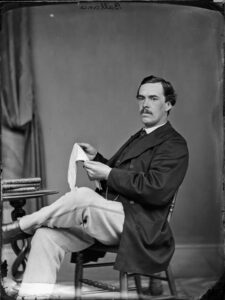
I believe in the absolute equality of the sexes, and I think they [women] should be in the enjoyment of […]
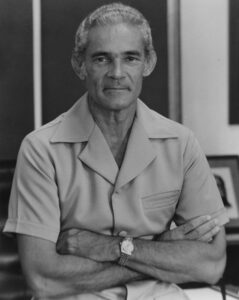
I like life with its mysteries. I don’t need my imponderables filled in for me. Michael Manley quoted by Rachel […]
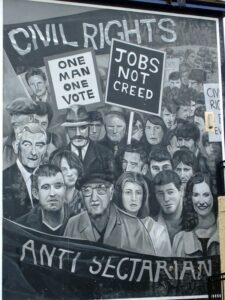
A brief history of humanism and secularism in Northern Ireland Organised humanism began in Northern Ireland in the 19th century, […]
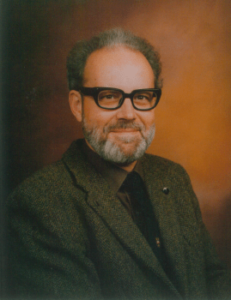
Humanism involves not just the deletion of God from moral thought, but the development of humanity on a rational and […]